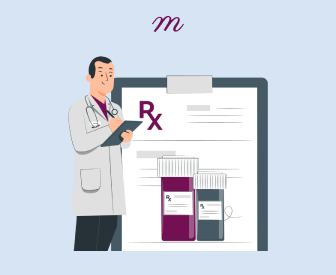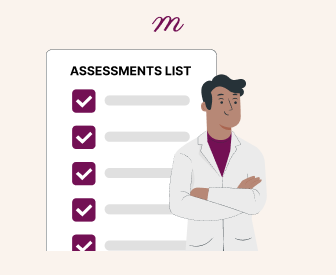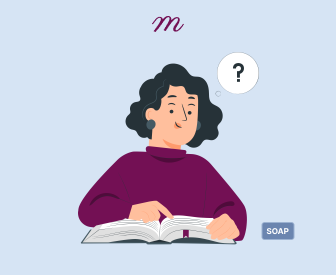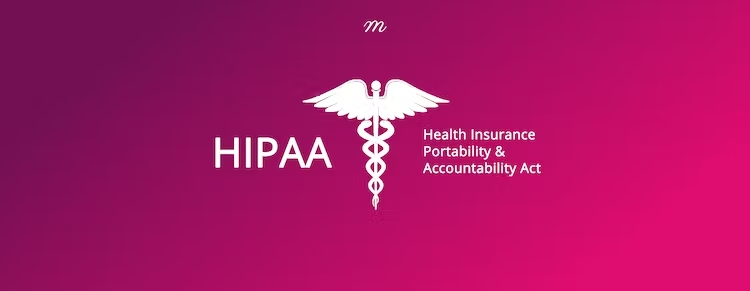Have your progress notes written for you automatically
Are you keeping up with the latest trends in healthcare? If not, you should know that e-prescribing is taking the industry by storm, especially among mental health professionals. It's a game-changer in medication management, and it's all thanks to modern technology! With e-prescribing, you can send prescriptions directly to pharmacies from your electronic health record system (EHR). E-prescriptions provide safer medical care for clients, reduce medication errors, simplify the medication management process, and save time. And that's not all! If you want to learn more about how this technology can revolutionize your mental health practice, stay tuned! This blog will give you a comprehensive overview of its benefits and guide you through implementing e-prescribing.
What Is E-Prescribing, and Why Is It Used in Mental Health?
E-prescribing, or electronic prescribing, is a method of sending prescriptions directly to pharmacies from a healthcare provider's computer or electronic medical record system. The management of prescription drugs has undergone a significant transformation with the introduction of e-prescribing, or electronic prescribing. This innovative technology has revolutionized the way mental health clients receive medication. By replacing the traditional handwritten method with computerized prescriptions, e-prescribing has brought about a faster, more accurate, and more secure process. E-prescribing eliminates the possibility of errors caused by illegible handwriting, ushering in a new age of precise medicine.
However, e-prescribing has not only made prescription management easier but also more compassionate and empathetic for clients. Clients can now order their medicines through online portals and fill prescriptions from any pharmacy that accepts e-prescriptions, increasing their convenience and flexibility. Moreover, e-prescribing enables clients to receive medication reminders and access educational resources related to their medications, empowering them to take control of their health and well-being. This fosters a deeper understanding and communication between mental health practitioners and clients, resulting in better health outcomes and an improved quality of life.
The Advantages and Disadvantages of E-Prescribing for Mental Health Practitioners
As a mental health practitioner, implementing e-prescribing in your practice is an essential step towards providing the best possible care to your patients. E-prescribing is a remarkable advancement in mental healthcare, and it can bring numerous benefits to you and your practice. However, it's important to note that e-prescribing is not necessarily a one-size-fits-all solution. Before transitioning to e-prescribing, assess your capabilities and requirements to determine potential benefits for your practice and clients.
To help you make an informed decision, we've compiled a list of the advantages and disadvantages of e-prescribing.
Advantages
- You can electronically prescribe refills, stay up-to-date with a client's medications, and view a complete medication history to avoid duplications and contraindicated medications.
- Faster transmission of prescriptions to pharmacies eliminates delays caused by faxing or mailing paper prescriptions.
- It eliminates paper prescription pads, faxing, and shipping, which reduces costs. These cost savings can be reinvested into enhancing client care and expanding services.
- Lower staffing needs due to automation and efficiency gains.
- E-prescribing systems suggest generic alternatives, lower-cost options, and formulary preferences, making medication more affordable and accessible.
Disadvantages
- Implementing e-prescribing is expensive, requiring significant upfront costs for hardware, software, and setup. This poses a challenge for private practices with limited budgets to switch to e-prescriptions due to the investment of time and money required for implementation.
- Additional staff training is required to use the new e-prescribing software and system.
- Reliance on stable internet and functioning e-prescribing systems is crucial; system downtime may affect prescription writing, challenging practitioners in rural and remote areas.
- E-prescribing systems face a risk of data breaches or inadequate security controls, which can compromise client privacy and data security.
- For clients without insurance, the affordability of medications could be a barrier.
How E-Prescribing Improves Client Safety and Outcomes
The integration of electronic prescription systems can revolutionize mental health care. By implementing this technology, mental health professionals can enjoy numerous benefits that result in improved client outcomes. E-prescribing ensures faster prescription turnaround times, reduced medication errors, and a more secure and streamlined mental health care system. By embracing e-prescribing, mental health providers can offer their clients an improved, efficient, and client-centered mental health care experience.
Improved Care Coordination
E-prescribing can enhance care coordination between mental health practitioners and other healthcare providers. With electronic records, seamless communication and collaboration are possible, allowing real-time access to a client's medication information. This ensures that all healthcare professionals involved in the client's care are on the same page, reducing the risk of adverse events and promoting integrated and holistic treatment approaches.
Fewer Medication Delays
By using e-prescribing, clients can experience fewer delays in getting their prescriptions and enjoy a hassle-free process. They no longer have to wait for providers to fax their prescriptions to the pharmacy, as they can go directly to the pharmacy and pick up their medication. This not only saves time but also ensures that clients receive their medication in a timely and efficient manner.
Reduced Risk of Errors
E-prescribing is an efficient solution that eliminates the risks associated with illegible handwriting or misinterpretation of prescriptions. It has an automatic check for potential drug interactions and allergies, which helps to avoid adverse reactions. Clients receive the exact medication and correct dosage from the outset, reducing the risk of underdose or overdose. This proactive approach minimizes the risk of dangerous drug interactions and helps prevent medication-related complications.
Improved Client Monitoring
E-prescribing systems facilitate mental health providers in tracking the medications that their clients have filled and refilled. This enables them to identify instances of non-adherence and address them proactively. By monitoring prescription usage over time, providers can gain valuable insights into the effectiveness of treatments and make adjustments as needed to optimize outcomes.
Implementing E-Prescribing: Considerations for Your Practice
E-prescribing is a powerful tool that has the potential to revolutionize your mental health practice completely. By using this technology, you can streamline your processes and provide your clients with a more efficient and practical experience. With the right plan and confidence, you can seamlessly integrate e-prescribing into your practice and fully utilize its capabilities. Imagine being able to provide your clients with faster and more accurate prescriptions while also reducing errors and improving communication with other healthcare providers. To start, find a reliable e-prescribing software that's easy to integrate with your current systems and offers helpful features like drug interaction checking and dosage calculators.
Utilize the software's tutorials and support resources to familiarize yourself with all the exciting tools. Start by prescribing electronically to a small group of stable clients to build your confidence and identify any issues that might arise. This gradual transition will help you get comfortable with the system before rolling it out to all your clients.
What is Electronic Prescribing of Controlled Substances (EPCS)?
Electronic Prescribing of Controlled Substances (EPCS) is a secure and digital method for healthcare providers to generate and transmit prescriptions for controlled substances to pharmacies. It revolutionizes prescription orders by enabling secure, digital transmission of controlled substance prescriptions. Pharmacists efficiently dispense medications, enhancing patient safety through accurate electronic records. EPCS adheres to DEA regulations, streamlining the process while maintaining the integrity of medical records. This technology marks a significant advancement, seamlessly integrating the prescribing and dispensing of controlled substances while upholding regulatory standards.
Many practitioners have questions about e-prescribing for mental health. Here are some of the most frequently asked questions and their answers:
How does e-prescribing work for mental health medications?
E-prescribing allows mental health professionals to prescribe non-controlled medications to pharmacies electronically. You enter the prescription into your EHR or e-prescribing software, review it, and electronically sign and send it to the client's selected pharmacy. The pharmacy receives it instantly and can have the medication ready for pickup when the client arrives.
What are the benefits of e-prescribing for mental health?
E-prescribing improves client safety by reducing errors from illegible handwriting and providing prescription information in a standard format. It also checks for allergies, interactions, and other issues before sending the prescription. E-prescribing saves time through automation and improves productivity. It provides a complete record of a client's medication history in one place.
What types of mental health medications can be e-prescribed?
Non-controlled mental health medications like antidepressants, anti-anxiety medications, sleep aids, and medications for ADHD can typically be e-prescribed. Controlled substances cannot be e-prescribed due to federal regulations.
How much does e-prescribing cost?
E-prescribing software and services are often available at no cost to prescribers as part of an EHR or separately. Some charge nominal monthly or per-prescription fees.
How do I get started with e-prescribing for mental health?
Check if your current EHR offers e-prescribing capabilities. If not, explore stand-alone e-prescribing services. You must set up an account, enter your prescriber information, and select a pharmacy network. Most services offer free trials and training to help you get started.
Conclusion
Get ready to step into the future of mental healthcare and embrace the change that will revolutionize your practice! Experience the power of e-prescribing and unlock a world of possibilities you never thought possible. With e-prescribing, you'll improve the safety, efficiency, and outcomes of your practice while providing your clients with the best possible care. Say goodbye to risks, save time, and watch your practice grow through the power of technology!
Your clients will thank you for taking the initiative to put their health first by embracing new technology. So start small, learn the system, work through issues, and build confidence. Before you know it, you'll be e-prescribing like a pro and wondering why you didn't change sooner. With practice and time, e-prescribing will become second nature, and you'll find yourself at the forefront of mental healthcare. Step up and make a difference with your skills and knowledge. Embrace the exciting world of e-prescribing – the future of mental healthcare is here, and you're ready to lead the way!
If you are interested in keeping yourself updated with the latest technology-integrated mental healthcare software, don't miss out on the opportunity to sign up for our newsletter. Take the first step towards a brighter future by availing of our free trial today. Our AI Note Generator is HIPAA-compliant and designed to help clinicians reach their full potential by reducing burnout and enhancing productivity.
Resources:
Ducker, M., Sanchez, C., & Taylor, S. R. (2013, August 20). Pros and Cons of E-prescribing in Community Pharmacies. U.S. Pharmacist – The
Leading Journal in Pharmacy. https://www.uspharmacist.com/article/pros-and-cons-of-e-prescribing-in-community-pharmacies-42392
E-prescribing (eRx). American Psychiatric Association. (n.d.). https://www.psychiatry.org/psychiatrists/practice/practice-management/health-information-technology/e-prescribing
Electronic Prescribing. Academy of Managed Care Pharmacy. (2019, July 18). https://www.amcp.org/about/managed-care-pharmacy-101/concepts-managed-care-pharmacy/electronic-prescribing
Hirschtritt, M. E., Chan, S., & Ly, W. O. (2017, December 15). Realizing E-prescribing's Potential to Reduce Outpatient Psychiatric Medication Errors. Psychiatric Services. https://ps.psychiatryonline.org/doi/10.1176/appi.ps.201700269
Rothbard, A. B., Noll, E., Kuno, E., Zubritsky, C., Hurford, M. O., Holzer, C., & Hadley, T. (2013, May). Implementing an E-prescribing System in Outpatient Mental Health Programs. Administration and policy in mental health. https://pubmed.ncbi.nlm.nih.gov/22273798/










